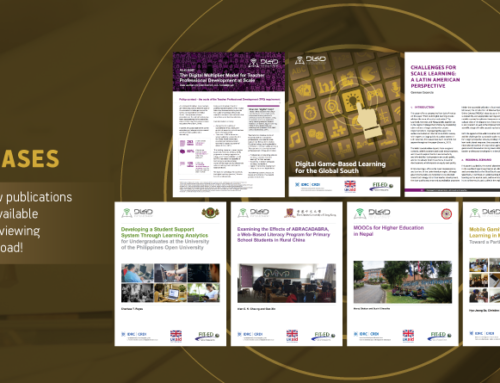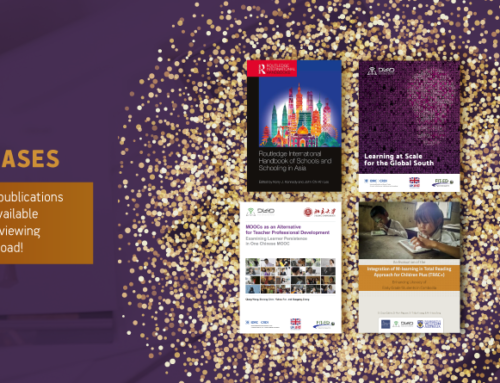Digital Learning for Development (DL4D) and the TPD@Scale Coalition for the Global South has begun a two-part study on “Using technology to accelerate teacher professional development towards achieving SDG 4” comprising of a landscape review of teacher professional development at scale (TPD@Scale) in the Global South and the formulation of a research agenda to inform governments and implementers on the uses of information and communication technologies (ICT) to advance equitable, efficient, and quality TPD@Scale. The study is being jointly funded by Canada’s International Development Research Centre (IDRC), the United Kingdom’s Department for International Development (UKAid), and the United States Agency for International Development (USAID). These three institutions are members of the Mobiles for Education Alliance and this publication will join the series of landscape reviews jointly designed by Alliance members.
Saide, a non-governmental organization based in Johannesburg, has been chosen to lead the study. Tony Lelliott, Alan Amory, and Tijani Fatimah Yetunde will be Co-Principal Investigators.
The landscape review will provide a comprehensive overview of the state of ICT-mediated TPD on a large scale for primary and secondary education teachers across the Global South. While much is known about the principles of effective TPD, there is significantly less research on models in developing countries that use ICT in some way to apply these principles at scale. The review will also seek to understand the key principles and components of design, development, and deployment of large-scale, ICT-mediated TPD programs in developing country contexts by examining both successful and less successful cases.
The research agenda will prioritize research questions relevant and actionable for governments and implementers interested in employing proven TPD@Scale models and techniques. The development of this agenda will draw from the activities of and insights from the landscape review.
Established in 1992, Saide conducts projects throughout South Africa and sub-Saharan Africa. It is committed to the process of transformation of education and training so as to increase equitable and meaningful access to knowledge, skills, and learning through the adoption of open learning principles, distance education methods, and educational technology.







